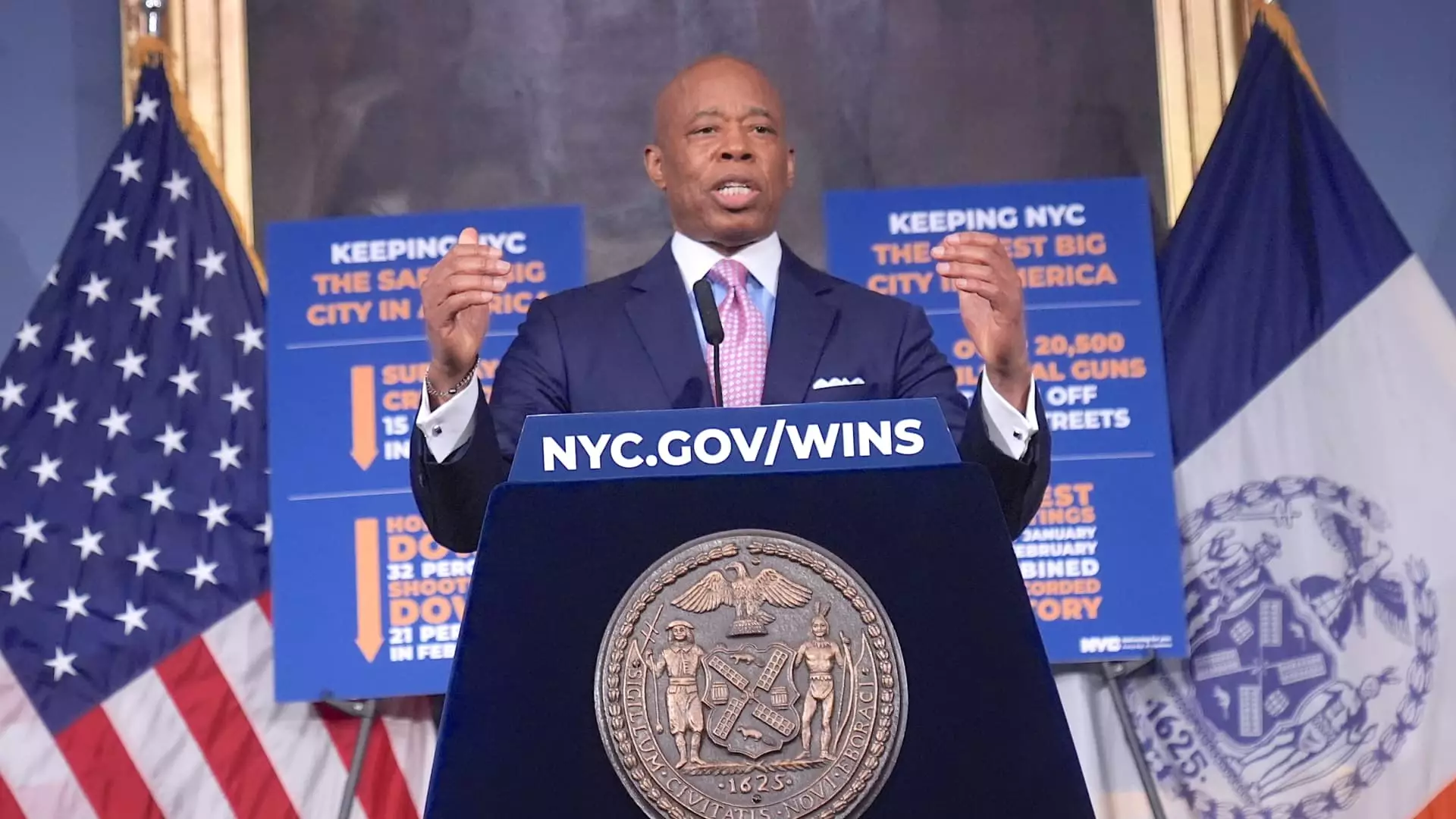In an audacious pivot, New York City’s Mayor Eric Adams has declared his intention to run for reelection as an independent, a decision taken just a day after a federal judge dismissed corruption allegations that could have engulfed his administration in chaos. This unexpected move is not merely a strategic escape from the shadows of a clouded past; it signifies a deeply philosophical shift—one where Adams posits himself as a leader unbound by partisan chains. His declaration is both a rebellious outcry against traditional party politics and an earnest claim of commitment to the working people of New York.
Speaking through a social media post on X, Adams asserted, “I have always put New York’s people before politics and party — and I always will.” This assertion marks a critical juncture in American political discourse where constituents are beginning to grow weary of the entrenched political machinery, yearning for leadership that goes beyond the antiquated dichotomies of left and right. By opting out of the Democratic primary, Adams is openly challenging the status quo and aligning himself with a growing cadre of independent thinkers, raising the question: is it time to redefine what leadership means in America?
The Ghost of Scandal: A Legacy in Question
The dismissal of the bribery and wire fraud charges against Adams is certainly a reprieve, yet the allegations—with their sordid details involving lavish gifts and foreign nationals—linger ominously, shading his leadership with distrust. The judge’s ruling effectively removes a judicial sword hanging precariously above his head, allowing him to run unfettered. “This is so unnatural for me,” Adams remarked, likening himself to a racehorse restrained by unseen reins. One can’t help but ponder whether these historical allegations will continue to haunt him as he attempts to forge a new path.
While a potential reelection under the current climate may indeed tempt some voters with promises of an independent vision, the remnants of past transgressions could render such efforts futile. New Yorkers are not just seeking change; they demand accountability from their elected officials. Adams himself addressed this skepticism when he said, “I know that the accusations leveled against me may have shaken your confidence,” acknowledging a breach of trust that many citizens feel deeply.
Free from Party Shackles: A New Campaign Strategy
Adams’ decision to appeal directly to the electorate as an independent showcases an intriguing strategy. He seems dedicated to cultivating a “solid base of people” outside the traditional political brawls that dominate Manhattan’s landscape. This is not only shrewd but indicative of a broader tide—citizens are increasingly prioritizing effectiveness over party identity. The emphasis on a diverse coalition rather than narrow ideological lines could prove significant in a city as multifaceted and vibrant as New York.
Nevertheless, this trajectory holds its own set of challenges. The mayor has to navigate through a political minefield filled with long-standing party loyalties and affiliations that may resist any attempts to redefine the game. If he is to resonate with a broader base, his campaign must pivot from mere rhetoric to actionable policies that genuinely address the core concerns of everyday New Yorkers. It is here that he needs to prove that his independent status is not merely a gimmick but a genuine call for holistic and pragmatic governance.
A Broader Reflection on Party Politics
Adams’ candidacy as an independent could reflect a growing sentiment among voters tired of the perennial partisan squabbles that overshadow critical local issues. His remarks hint at a longing for political discourse that intersects with reality instead of being stifled by party ideologies. As the political landscape shifts, leaders like Adams have the chance to dismantle long-standing barriers and invite a new age of governance that emphasizes collaboration and real engagement over partisan vindication.
Yet, whether this movement will succeed hinges significantly on public perception. Will New Yorkers view Adams as a legitimate alternative or merely another politician attempting to redefine himself for convenience? The answer to this question will determine not just the fate of Adams but the future of independent candidates in one of America’s most iconic cities as well. The challenge is potent: if Adams can exorcise the demons of his political past and exhibit a compelling vision that garners both trust and enthusiasm, he might very well carve a new niche for independent voices in the larger political arena.


Leave a Reply